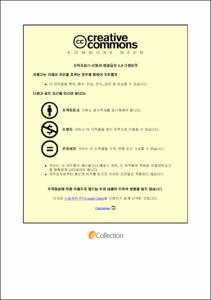암 환자의 삶의 질에 영향을 미치는 인자들 중 암성 피로가 가지는 역할에 대한 연구
- Abstract
- Abstract
Cancer-related fatigue(CRF) is one of the most distressing symptoms that occurs during cancer treatment, and it has significant impact on patient’s quality of life. This study was to find the factors that are related to cancer-related fatigue, and how they play a role in cancer patient’s quality of life.
The medical records of 159 patients who visited the Sleep Clinic for Cancer Patients of Asan Medical Center between December 2018 and January 2020 were retrospectively reviewed. The information about demographic characteristics, cancer diagnosis, cancer stage, cancer treatment, psychiatric diagnosis was collected. The result of questionnaires about patient’s depression, anxiety, insomnia, fear of disease progression, dysfunctional beliefs about sleep, pain, quality of life was also reviewed. We also obtained data about patient’s sleep structure, and went through statistical analysis using the data mentioned above.
The mean age of the participants was 54.8 years with the standard deviation 11.6, and 82% were female. The PHQ-9, STAI, ISI, FoP, C-DBS, Pain NRS scores were all associated with Fatigue NRS score with statistical significance. However, Only the PHQ-9, STAI, and FoP scores showed meaningful association with the Quality of life (WHO-5 Questionnaire) score. The same results were repeated in the logistic regression analysis with adjustment of confounding variables (i.e., age, sex, cancer type, psychiatric diagnosis). The time in bed during 24 hours did not show significant association with fatigue NRS score. This could be caused by the limitation of the fatigue NRS - that it is a one-item questionnaire which can only obtain subjective information about fatigue symptom - or the possibility that the time in bed during 24 hours does not work as an objective indicator of fatigue symptom. Therefore, the need for developing objective measurement and consensus on how to assess for cancer-related fatigue has important meaning for future studies.
We performed pathway analysis to find out how cancer-related fatigue affects the cancer patients’ quality of life with association of many psychosocial factors such as depression, anxiety, insomnia, dysfunctional beliefs about sleep, fear of disease progression. The result showed same result about how depression, anxiety, insomnia, dysfunctional beliefs about sleep, and fear of disease progression affects the fatigue symptoms compared to other recent studies. However, both fatigue NRS scores and the time in bed during 24 hours does not work as a risk factor of decreased quality of life. We also found that the depression of cancer patients works as a risk factor for insomnia, fatigue, quality of life in cancer patients. This could remind the importance of assessment and intervention of depressive symptoms throughout the cancer treatment in terms of the patients’ quality of life.
Key Words: Cancer-related fatigue, Depression, Quality of life
|국문 요약
암성 피로는 암 환자의 치료 과정에 있어서 가장 흔하고 고통스러운 부작용 중에 하나로, 암 환자의 삶의 질에 부정적인 영향을 미칠 수 있는 요인으로 관심을 받고 있다. 본 연구에서는 암성 피로에 영향을 미치는 요인들에 대해 파악하고, 이들이 어떻게 암환자의 삶의 질에 영향을 미치는지에 대해 알아보고자 하였다.
2018년 12월 1일부터 2020년 1월 31일까지 서울아산병원 암 스트레스 및 수면장애 클리닉 내원 시 초진설문지 작성과 면담이 가능하였던 환자 159명을 대상으로 연구를 수행하였다. 의무기록 열람을 통하여 환자의 기본 인구학적 특성 및 암 종류, 암 병기, 암 치료 상황, 정신과적 진단 등의 임상 지표를 파악하였다. 또한 우울, 불안, 불면, 암 진행에 대한 두려움, 잠에 대한 역기능적 사고, 통증, 피로, 삶의 질에 대한 설문 결과를 파악하였으며, 환자의 수면구조에 관련된 지표들을 확인하고 이에 대한 통계 분석을 시행하였다.
연구 대상자들의 평균 연령은 54.8 ± 11.6세였으며, 82%가 여성이었다. 암성 피로와 유의한 상관관계(Spearman’s correlation analysis)를 보인 요인으로는 우울(Patient’s Health Questionnaire-9), 불안(State-Trait Anxiety Inventory), 불면(Insomnia Severity Index), 암 진행에 대한 두려움(Fear of Progression), 수면에 대한 역기능적 사고(Cancer-related Dysfunctional Beliefs about Sleep), 통증(Pain Numeric Rating Scale)이었으며, 삶의 질에 대해서는 우울과 불안, 암 진행에 대한 두려움만이 유의한 상관관계를 나타내었다. 이는 로지스틱 회귀 분석에서 나이와 성별, 정신과적 진단, 암 종류에 대한 보정을 시행한 이후에도 동일한 결과를 나타내었다. 한편 24시간 동안 총 침상 시간(TIB/d, Time in bed during 24 hours)과 암성 피로 사이에는 통계학적 연관성을 보이지 않았는데, 이는 피로감을 측정하는 도구의 문제이거나, 혹은 TIB/d가 피로 증상의 객관적인 평가 지표로 작용하지 못할 가능성이 있겠으며, 향후 연구에서 암성 피로 증상을 측정하는 보다 더 구체적이고 객관적인 평가도구의 개발에 대한 필요성을 제기하였다.
암성 피로가 우울, 불안, 불면, 잠에 대한 역기능적 사고, 암 진행에 대한 두려움 등과 어떠한 경로를 통해 삶의 질에 영향을 미칠지에 대한 모델 가설을 설정하여 이에 대한 경로분석을 시행하였다. 분석 결과 우울, 불안, 불면, 잠에 대한 역기능적 사고, 암 진행에 대한 두려움 등이 피로 증상에 미치는 영향은 기존의 연구들과 일맥 상통하는 결과를 보였으나, 피로증상이 삶의 질에 직접적인 위험인자로 작용하지는 않았으며, 주간 총 참상시간(Time in bed during daytime, TIB/daytime) 역시 삶의 질에 직접적인 위험인자로 작용하지 못하였다. 또한 암 환자의 삶의 질에 있어서 다른 인자들 보다 우울 증상이 광범위한 위험인자로 작용함을 알 수 있었으며, 암 치료 과정에서 우울 증상에 대한 평가 및 개입의 중요성을 다시 한 번 확인하였다.
- Issued Date
- 2020
- Awarded Date
- 2020-08
- Type
- Dissertation
- Alternative Author(s)
- YEO, SUNGOOK
- Affiliation
- 울산대학교
- Department
- 일반대학원 의학과의학전공
- Advisor
- 정석훈 교수님
- Degree
- Master
- Publisher
- 울산대학교 일반대학원 의학과의학전공
- Language
- kor
- Rights
- 울산대학교 논문은 저작권에 의해 보호받습니다.
- Appears in Collections:
- Medicine > 1. Theses (Master)
- 파일 목록
-
-
Download
 200000334112.pdf
기타 데이터 / 977.16 kB / Adobe PDF
200000334112.pdf
기타 데이터 / 977.16 kB / Adobe PDF
-
Items in Repository are protected by copyright, with all rights reserved, unless otherwise indicated.